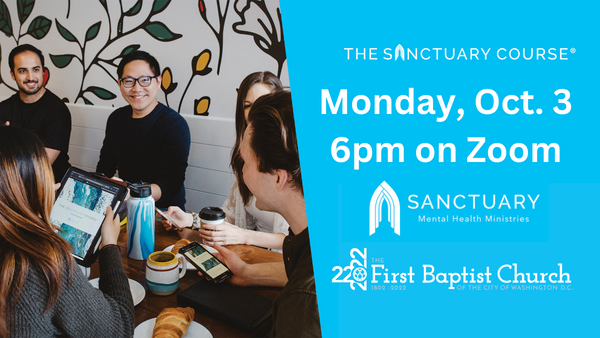The Sanctuary Course
Resource Descriptions
Informed and empathetic conversations about mental health and mental health challenges can transform communities of faith. The Sanctuary Course is an eight- week study guide for churches and small groups who want to learn about mental health and start their own conversations.
The Sanctuary Course was created to equip churches as they seek to become sanctuaries where individuals with mental health challenges feel safe, supported, and a sense of belonging. Each session explores key mental health topics, drawing upon the insights of mental health professionals, church leaders, and people with lived experience.
The Sanctuary Course is a resource designed to engage communities of faith in vital conversations about mental health and mental health challenges. Come and learn about important topics such as stigma, recovery, companionship, and self-care. This course requires no prior mental health training or expertise; it is for anyone interested in starting the faith and mental health conversation.
One in four people will be affected by a mental health challenge at some point in their lives, yet the stigma surrounding these experiences often prevents faith communities from responding compassionately and effectively. The Sanctuary Course is a small-group resource designed to reduce stigma, raise awareness, and engage communities in meaningful conversations about mental health and faith. Each session examines a key mental health topic, and the accompanying films feature insights from mental health professionals, church leaders, and theologians.
How can a church become a sanctuary—a place where individuals living with mental health challenges feel safe, supported, and a sense of belonging? The Sanctuary Course was created to inspire and equip communities of faith that are asking this important question. Developed in consultation with mental health professionals, theologians, and people with lived experience, this eight-session study guide explores key mental health topics and examines meaningful ways to offer companionship, support recovery, and promote wellbeing.

